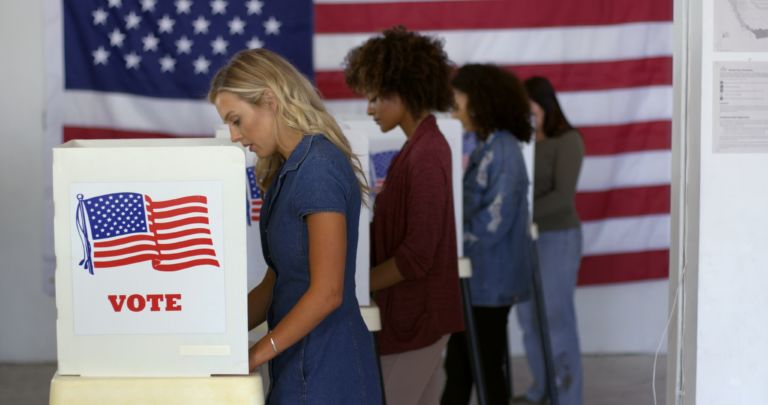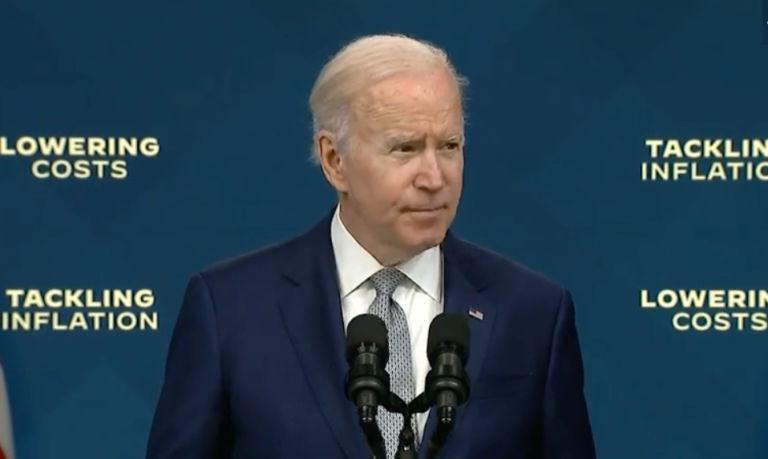- Public opinion polling is a powerful tool for accountability in the democratic process, creating transparency between policymakers and the people they represent and amplifying the voices of the governed
- In a time of increasing polarization and division, polling serves as a bridge-builder, facilitating constructive conversations and forging consensus around shared values and goals
- Carolina Journal and the John Locke Foundation remain committed to conducting statewide public opinion polls grounded in rigorous methodology and statistical principles in order to ensure that the voices of North Carolinians continue to guide our work
People who keep up with politics hear it all the time. “I don’t trust polls,” “They never called me,” or “That’s a Democratic/Republican pollster.”
I get it. It can be challenging to trust public opinion polling in the Information Age. But that does not mean polling is not useful or even inaccurate, and we will only see more polling as we go deeper into 2024.
As the CEO of the John Locke Foundation and publisher of Carolina Journal (our poll is now the Carolina Journal Poll), I firmly believe in the power of informed public opinion to drive meaningful change in our society. Public opinion polling is a vital tool in our arsenal, allowing us to gauge the pulse of the people we serve and ensuring that our policy recommendations are grounded in their needs and aspirations.
At the heart of Locke’s mission lies a commitment to advancing the principles of liberty, limited government, and individual empowerment. But lofty ideals mean little if they don’t resonate with the everyday concerns of citizens. And it is nearly impossible to move policy ideas if they don’t have at least some public support. This is where public opinion polling comes into play.
Through meticulously designed surveys and polls, we can tap into the collective wisdom of North Carolinians, gaining insights into their priorities, fears, and hopes for the future. Whether assessing attitudes towards taxation, health care, education, or energy prices, polling allows us to identify areas of consensus and divergence, enabling us to inform the public policy process.
Moreover, public opinion polling is a powerful tool for accountability in the democratic process. By regularly measuring public sentiment on key issues, we create a certain amount of transparency between policymakers and the people they represent. In a democratic republic, the voices of the governed must be heard, and polling provides a mechanism for amplifying those voices.
Otto von Bismarck’s timeless adage, “Politics is the art of the possible, the attainable — the art of the next best,” encapsulates the pragmatic essence of governance. In public policy, where competing interests and complex challenges abound, decisions must be grounded in the realities of what is achievable and sustainable. Public opinion polling serves as a compass in this landscape, offering policymakers invaluable insights into the hopes, concerns, and priorities of the people they serve. By understanding the pulse of public sentiment, policymakers can navigate the intricacies of political discourse, identifying pathways toward consensus and compromise. In essence, public opinion polling empowers policymakers to craft theoretically sound and politically viable policies, embodying Bismarck’s ethos of pursuing the “next best” solution for the collective good.
But most importantly, public opinion polling fosters dialogue and engagement within our communities. By soliciting input from a diverse array of citizens, we promote inclusivity and democratic participation, empowering individuals to shape the policies that impact their lives. In a time of increasing polarization and division, polling serves as a bridge-builder, facilitating constructive conversations and forging consensus around shared values and goals.
At Locke, we’re self-aware. We know that we have critics who sometimes accuse us of conducting what is called a push poll.
Despite the criticisms leveled at polling since the 2020 election, it’s essential to recognize that polling conducted by reputable pollsters remains a scientific endeavor grounded in rigorous methodology and statistical principles. Pollsters such as Carolina Journal‘s partner Cygnal employ sophisticated sampling techniques to ensure that their surveys are representative of the broader population or model likely election turnout. Moreover, they adhere to established survey design and data analysis standards, minimizing biases and errors inherent in any polling process. While no polling method is immune to challenges, such as declining response rates or the difficulty of accurately capturing rapidly changing dynamics, reputable pollsters continuously refine their methodologies to adapt to these challenges. Thus, while skepticism towards polling is understandable, dismissing it entirely would overlook the valuable insights it can provide when conducted with scientific rigor and transparency.
As we look toward the future, the role of public opinion polling in informing the public policy process will only continue to grow in importance. In an era of rapid technological advancement and evolving social dynamics, the need for timely and accurate data has never been greater. As such, Carolina Journal and the John Locke Foundation remain committed to conducting statewide public opinion polls ensuring that the voices of North Carolinians continue to guide our work.
By harnessing the power of data and dialogue, we can build a more responsive and inclusive public policy process that truly reflects the needs and aspirations of the people we serve. As stewards of this process, the John Locke Foundation and Carolina Journal remain vigilant in our commitment to transparency, accountability, and the pursuit of the common good.


